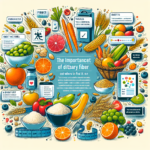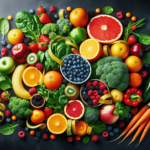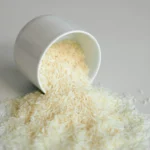Have you ever wondered how much water you should be drinking each day? It’s a common question for those looking to improve their overall health through nutrition. We often hear about the importance of a balanced diet, but proper hydration is just as essential. With so much information out there, it can be overwhelming to know how much water your body truly needs. In this article, we’ll explore the recommended daily water intake, factors that can affect it, and why staying hydrated is crucial for your well-being. So grab a glass of water and let’s dive into the world of hydration!
In This Article
ToggleFactors to consider
Activity level
Your activity level plays a significant role in determining how much water you should be drinking each day. If you lead an active lifestyle and engage in regular exercise, you will likely need to consume more water to compensate for the water lost through sweating and increased respiration.
Climate
The climate you live in also affects your water intake needs. In hot and humid environments, you tend to lose more water through sweating, so it’s essential to increase your fluid intake to stay properly hydrated. Similarly, if you live in higher altitudes, you may need to drink more water due to increased respiration and potential increased urination.
Pregnancy or breastfeeding
If you are pregnant or breastfeeding, your water needs will be higher than usual. During pregnancy, your body requires more fluids to support the development of the fetus, and while breastfeeding, you need additional water to produce an adequate milk supply.
Health conditions
Certain health conditions, such as kidney stones or urinary tract infections, may require increased water intake to help flush out toxins and prevent complications. Additionally, if you have a fever, diarrhea, or are vomiting, you will need to consume more water to replenish the fluids lost.
General recommendations
The 8×8 rule
You may have heard of the 8×8 rule, which suggests drinking eight 8-ounce glasses of water per day. While this is a simple guideline to remember, it may not be suitable for everyone. Individual water needs vary based on factors like body weight, activity level, and climate, so it’s essential to consider these factors in addition to the 8×8 rule.
Institute of Medicine (IOM) guidelines
The Institute of Medicine (IOM) provides more specific recommendations for water intake. They recommend an adequate daily fluid intake of about 3.7 liters (or about 13 cups) for men and 2.7 liters (or about 9 cups) for women. These recommendations include fluids from all sources, including beverages and food.
Calculating your water intake
Body weight method
One way to estimate your daily water intake needs is by using the body weight method. Simply multiply your weight (in pounds) by 2/3 to determine the number of ounces of water you should be drinking each day. For example, if you weigh 150 pounds, you would aim to consume approximately 100 ounces (or about 12.5 cups) of water daily.
Urine color method
Monitoring the color of your urine can also provide an indication of your hydration status. The lighter and clearer your urine, the more adequately hydrated you are. If your urine is dark or concentrated, it’s a sign that you may need to increase your water intake.
Thirst as an indicator
While thirst should not be relied upon as the sole indicator of hydration, it can serve as a useful reminder to drink water. If you are feeling thirsty, it’s typically a sign that your body needs fluids, and you should make an effort to drink water when this occurs.
Water sources
Beverages
Water is an obvious and important source of hydration. Drinking plain water throughout the day is a simple and effective way to maintain hydration. Additionally, you can consider other beverages such as herbal tea, infused water, or low-sugar sports drinks to add variety while meeting your water intake goals.
Foods
Many foods also contain high water content and can contribute to your overall hydration. Fruits and vegetables, especially those with high water content like watermelon, cucumbers, and oranges, can provide both hydration and essential nutrients. Soups, broths, and even yogurt can also contribute to your water intake.
Hydration supplements
In some cases, individuals may require additional hydration support, such as athletes engaging in intense exercise or individuals with specific health conditions. In these instances, hydration supplements, such as electrolyte-enhanced drinks or powders, can help replenish fluids and maintain electrolyte balance.
Dehydration risks
Symptoms and signs
Dehydration can manifest through various symptoms and signs. These may include increased thirst, dry mouth, dark-colored urine, fatigue, dizziness, and reduced urine output. It’s important to be mindful of these signs and take immediate action to restore adequate hydration if they occur.
Effects on health
Dehydration can have adverse effects on your health. Even mild dehydration can lead to decreased cognitive function, impaired physical performance, and increased risk of heat-related illnesses. Severe dehydration can be life-threatening and may require medical attention.
Vulnerable populations
Certain populations are more susceptible to dehydration, including older adults, infants, and individuals with chronic illnesses. It’s crucial to be aware of the increased risk these groups face and take measures to ensure they receive adequate hydration.
Water needs during exercise
Pre-exercise hydration
Before engaging in physical activity, it’s essential to ensure proper hydration. Drink water or a sports drink a couple of hours before exercise to ensure your body has enough fluids to support the upcoming physical demands.
Fluid replacement during exercise
During exercise, strive to maintain hydration by drinking water at regular intervals. If you are engaging in prolonged or intense exercise, consider incorporating a sports drink that contains electrolytes to replenish the minerals lost through sweating.
Post-exercise hydration
After exercise, rehydrate by drinking water to replace any fluids lost during the workout. Aim to drink enough water to restore hydration levels and meet your daily water intake goals.
Tips for increasing water intake
Flavoring your water
If you struggle with drinking plain water, try flavoring it with a slice of lemon, cucumber, or a few berries. Infusing your water with natural flavors can make it more enjoyable and encourage you to drink more.
Using reminders
Set reminders on your phone or use apps to prompt you to drink water throughout the day. These reminders can help you stay conscious of your hydration goals and ensure you don’t forget to drink enough water.
Setting goals
Set specific goals for your daily water intake. For example, aim to finish a certain number of water bottles or glasses by specific times during the day. Having defined goals can provide motivation and structure for achieving your hydration targets.
Carrying a water bottle
Keep a reusable water bottle with you wherever you go. Having water readily available makes it easier to sip throughout the day and ensures you always have access to hydration, whether you’re at work, running errands, or exercising.
Water intake myths
Drinking 8 glasses of water a day
Contrary to popular belief, there is no scientific evidence supporting the need to drink exactly eight 8-ounce glasses of water per day. Your water intake requirements are dependent on various factors, as discussed earlier. It’s important to personalize your water intake based on your individual needs.
Thirst means you’re already dehydrated
While thirst is a signal that your body needs fluids, it doesn’t necessarily mean you’re already dehydrated. Thirst is the body’s way of reminding you to drink water, and it’s best to respond to this cue promptly to maintain proper hydration.
Only water counts towards hydration
While water is the optimal form of hydration, other beverages and even some foods can contribute to your overall fluid intake. It’s important to consider these sources when assessing your hydration status and meet your fluid needs from a variety of sources.
Health benefits of proper hydration
Improved physical performance
Staying adequately hydrated enhances your physical performance, whether it’s during exercise or everyday activities. Proper hydration supports optimal muscle function, joint lubrication, and overall energy levels, allowing you to perform at your best.
Digestive health
Water plays a crucial role in maintaining a healthy digestive system. It helps in the breakdown and absorption of nutrients, prevents constipation, and supports overall gut health. Drinking enough water throughout the day can contribute to optimal digestion and regular bowel movements.
Regulating body temperature
Proper hydration is essential for regulating body temperature. During hot weather or intense physical activity, your body relies on sweating to cool down. Adequate water intake allows for effective sweating and helps prevent overheating and heat-related illnesses.
Healthy skin
Proper hydration is also essential for maintaining healthy skin. When your body is well-hydrated, it can better moisturize the skin from within, promoting a youthful appearance, preventing dryness, and supporting overall skin health.
Factors that affect individual needs
Sweat rate
Individuals with higher sweat rates, such as athletes or those living in hot climates, may require more water to compensate for the increased fluid loss. Monitoring your sweat rate and adjusting your water intake accordingly is crucial for maintaining proper hydration.
Medications
Certain medications, such as diuretics, can increase urine production and contribute to dehydration. If you are taking any medications that affect your water balance, it’s important to consult your healthcare provider about adjusting your water intake accordingly.
Alcohol and caffeine intake
Alcohol and caffeine act as diuretics, increasing the production of urine and potentially leading to dehydration. If you consume alcohol or caffeine-containing beverages, it’s important to drink additional water to offset the dehydrating effects.
In conclusion, proper hydration is key to maintaining overall health and well-being. Factors such as activity level, climate, pregnancy or breastfeeding, and health conditions should be considered when determining your water intake needs. While general recommendations exist, individual factors should also be taken into account. Monitoring urine color, using thirst as a reminder, and incorporating hydration-rich foods and beverages can help meet your water intake goals. Being aware of dehydration risks, especially during exercise and for vulnerable populations, is crucial. Increasing water intake can be achieved through various strategies, including flavoring water, using reminders, setting goals, and carrying a water bottle. However, it’s important to debunk hydration myths and tailor your water intake to your unique needs. Proper hydration offers numerous health benefits, such as improved physical performance, digestive health, regulation of body temperature, and healthy skin. Factors like sweat rate, medications, and alcohol and caffeine intake can affect individual needs, highlighting the importance of personalized hydration strategies. Remember to listen to your body’s cues and prioritize hydration for optimal health.
Related posts:
 What is the appropriate calorie intake for maintaining my weight?
What is the appropriate calorie intake for maintaining my weight?
 The Importance of Dietary Fiber and Where to Find It
The Importance of Dietary Fiber and Where to Find It
 What are the benefits of eating organic foods?
What are the benefits of eating organic foods?
 What are healthy fats and how can they benefit my diet?
What are healthy fats and how can they benefit my diet?
 What are simple ways to reduce sugar in my diet?
What are simple ways to reduce sugar in my diet?
 How can I make healthier food choices when eating out?
How can I make healthier food choices when eating out?








No comment yet, add your voice below!